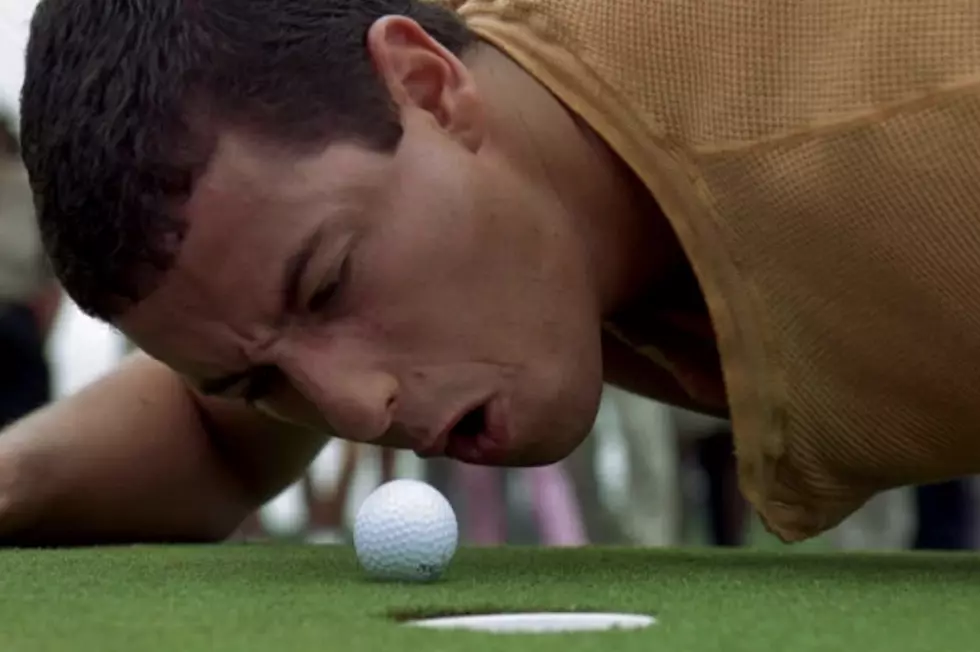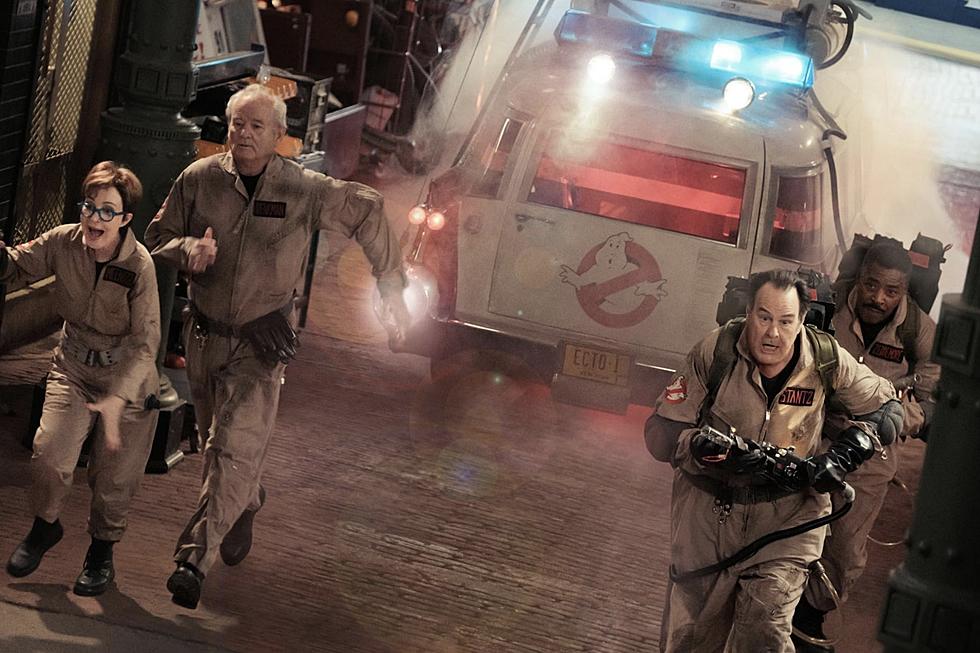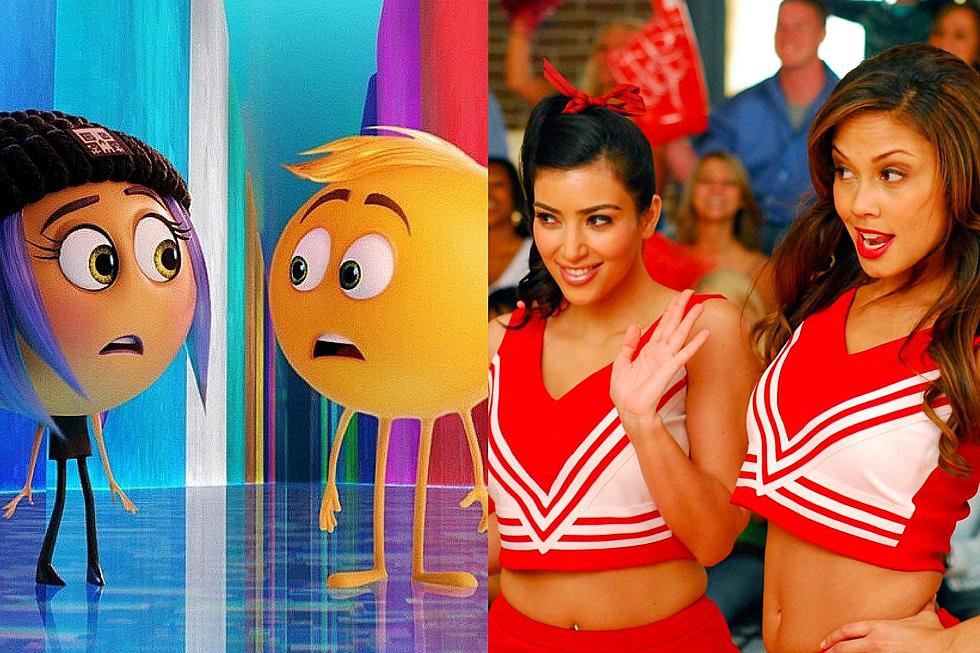
Jason Reitman on ‘Men, Women & Children,’ Adam Sandler and What He Learned From the Failure of ‘Labor Day’
I’m not going to pretend to think that after two interviews that I understand Jason Reitman or that I know what’s he’s feeling, but I do get the sense that Reitman is a sensitive guy who takes criticism to heart, even though that's not his public persona.
It was interesting that when Reitman and I discussed the recent merits of Adam Sandler – who stars in Reitman’s new film, ‘Men, Women & Children’ – Reitman turned the tables back on himself, mentioning the box office failure of ‘Labor Day.’ And, openly talking about the failures of ‘Labor Day.’ Reitman’s point is that even if it looks like Sandler might not care about a movie like, say, ‘Jack & Jill,’ Sandler still desperately cares about that movie. Because, as Reitman points out, people picked on ‘Labor Day,’ but that doesn’t mean Reitman wasn’t trying to make his best movie. Sure, that didn’t happen, but you don’t know until it’s made.
Reitman’s latest is a true ensemble piece – starring Sandler, Jennifer Garner, Dean Norris, Ansel Elgort, Judy Greer, Rosemarie Dewitt and a whole host of others – as parents who live in a world where their kids are constantly connected, for better and for worse. No matter what you think of this movie, it’s Reitman’s most ambitious movie to date and it’s a strong move after what was Reitman’s first critical and financial failure, which he here bluntly remembers as a an experience that’s “shitty as hell.”
Last year at the Toronto International Film Festival, I was wary of interviewing Reitman because of his infamous pie chart – in which he chronicled every question that was asked of him during his press for ‘Up in the Air’ - with the most popular question being, ‘What was it like working with George Clooney?” This year in Toronto, Reitman is back with a film that has him feeling much more confident, but hasn’t forgotten the lessons he learned from ‘Labor Day,’ which he’s surprisingly candid about,
And he hasn’t forgotten his ‘Up in the Air’ star, who I couldn’t help but ask about with my first question.
What was it like working with George Clooney?
Well, here’s the thing with George Clooney, what an asshole [laughs].
I’m glad we got that question out of the way. The truth comes out for the pie chart.
And the problem is, you’ll print that now with no irony on it and it will get around.
No, what I’ll do is add a little bracket with the word “laughs” in it, so people will know it’s a joke.
“Laughs ironically.”
The headline would be “Reitman calls Clooney an Asshole.”
Could you add, “laughs with a clear sense of irony”?
There’s a lot of imagery of people buried in their phone in this movie, and it’s kind of jarring to see it in a movie, but that’s the way life has become.
There’s a few key places where it’s fascinating. Elevators, people are staring at their phones. At restaurants you’ve got families staring at their phones, that’s always pretty sad. I know a rock photographer and she said to me that cell phones ruined the rock photo. Because it used to be after a band played on stage, they’d go break shit – and now, every photo, it’s just four guys sitting on a couch looking at their phones, texting girls in the audience.
You should break something in this hotel room right now.
You know what? Alright, look, for you [tears up a napkin].
The wild man is back.
There you go.
I enjoyed watching Adam Sandler give a shit in a movie again. When he does give a shit, he’s very good.
OK, I have to correct you on something. And hopefully correct what a lot of people presume, which is that Adam Sandler has movies he cares about and movies that he doesn’t. You cannot even imagine.
I think he cares about his movies, but I think he stopped caring about doing work that was a little more important.
I guess so. But the question becomes what is important?
I don’t think ‘Jack & Jill’ is important.
But you can only say after the fact. Look, is ‘Jack & Jill’ as good as ‘Happy Gilmore’? No. But did you know before either film that one would be better than the other? It’s very hard to tell. And I say this having grown up watching my father make movies, and you really fucking never know, oh, this one is going to be ‘Ghostbusters’ or this one is going to be ‘Junior.’ You don’t know in advance.
When I first saw the poster for ‘Junior,’ I remember thinking, Hot damn, Arnold Schwarzenegger is pregnant, this will be awesome.
[Laughing] I love it.
I’m serious.
But, you don’t know. I remember I was 23 years old and I just broke up after being seven years in a relationship and I moved into an apartment alone. You’re fucking terrified, it’s an empty apartment and you think I will die alone in this apartment. I needed to feel better and the movie I put on was ‘Happy Gilmore.’ It got me through tears, it made me smile – that movie was sooooo important to so many people.
But you can watch ‘Billy Madison,’ and ‘Happy Gilmore’ and ‘The Wedding Singer’ and watch a progression. Then he works with Paul Thomas Anderson and even something like ‘Spanglish,’ there’s a progression. Then that progression ends. We like to watch artists grow.
I get what you’re saying. It’s a misnomer to think that from within he is losing interest or gaining interest. You’re always trying. And I say that sensitively, because I can imagine someone looking at ‘Labor Day’ and going, “Remember when he fucking gave up?”
I don’t think anyone thinks that about you.
But I think it’s an easy thing to look at from the outside and go, “Oh, I just thought I’d phone one in.” Or, “Oh, I just thought I’d make a studio movie.” And it’s like, “No, I worked so fucking hard and I thought I was making something truly great.” And then, for whatever reason, it doesn’t land.
You’ve never had that experience before. ‘Young Adult’ didn’t make a lot of money, but critics liked it.
People think it’s cool as shit.
‘Labor Day’ was your first movie that failed at the box office and with critics. What’s that like for you?
It’s shitty as hell. It’s totally shitty. I mean, I was proud of my Tomato Rating and, yeah, it sucked … I’ve done more work on that movie than I’ve ever done on a movie. I’m proud of it. And then it doesn’t land and then you realize, oh, this was a misguided effort, for whatever reason.
Can you look back and determine where things went wrong?
My dad said something so smart to me. He does all the time, but he said, “I was watching ‘Labor Day’ again, it just struck me all of a sudden that you weren’t making a movie about a man and a women, you were making a movie about a kid,” … and Paramount marketed a movie about a man and a woman and everyone wrote about a movie about a man and a woman and it all became this kind of romance. And he said, “You really didn’t care about the romance, did you?” And I said, “No, the romance really was a B plotline to this kid.” So, if I somehow would have focused the movie on the kid? I don’t know. When a band plays a song outside of their genre, there’s a bit of, “Can you please go back to playing the songs we like?”
Was there then a desire to try to make another ‘Juno’ or ‘Up in the Air’?
I guess so…
Because ‘Men, Women & Children’ is a different kind of movie for you, too.
But this is more in my natural voice.
But you usually focus on just one or two characters and this is a true ensemble.
You always want to do new shit. You always want to do something new. If a script comes into me that is very reminiscent of something I’ve already done, it’s like what’s the point?
But after a movie doesn’t do well, is there a temptation?
No, I think if you’re scared, it’s more like, “Maybe I shouldn’t make movies.” It goes to your head, “Maybe that was a nice ride.”
Every great filmmaker has made movies that didn’t work.
I’m just telling you what goes through your head.
And then 30 years later you’re the guest of honor at the ‘Labor Day’ retrospective.
“One day people will finally realize how good this movie was!” No, and growing up the son of a director: some go well; some don’t go well.
Do you feel more pressure this time after a movie that didn’t perform like it was supposed to?
No. I think, if anything, ‘Labor Day’ took pressure off.
How so?
It’s interesting, starting with ‘Young Adult,’ I started to focus a lot more on my appreciation for the process of making a film. Through my first three films, which still focused on whether this is going to perform, whether this is going to succeed, what are critics going to think of it? And starting with ‘Young Adult,’ I started to focus on, “Am I enjoying making this film? And do I love the people around me?” I do this because I love the gig and I love the people I make movie with. And I am happy with ‘Men, Women & Children’ at this point, however tonight goes. Or however next month goes. A year from now you and I may be sitting here going, “Wow, what a failure,” or, “Holy shit, that went alright.”
Mike Ryan has written for The Huffington Post, Wired, Vanity Fair and GQ. He is the senior editor of ScreenCrush. You can contact him directly on Twitter.
More From ScreenCrush









